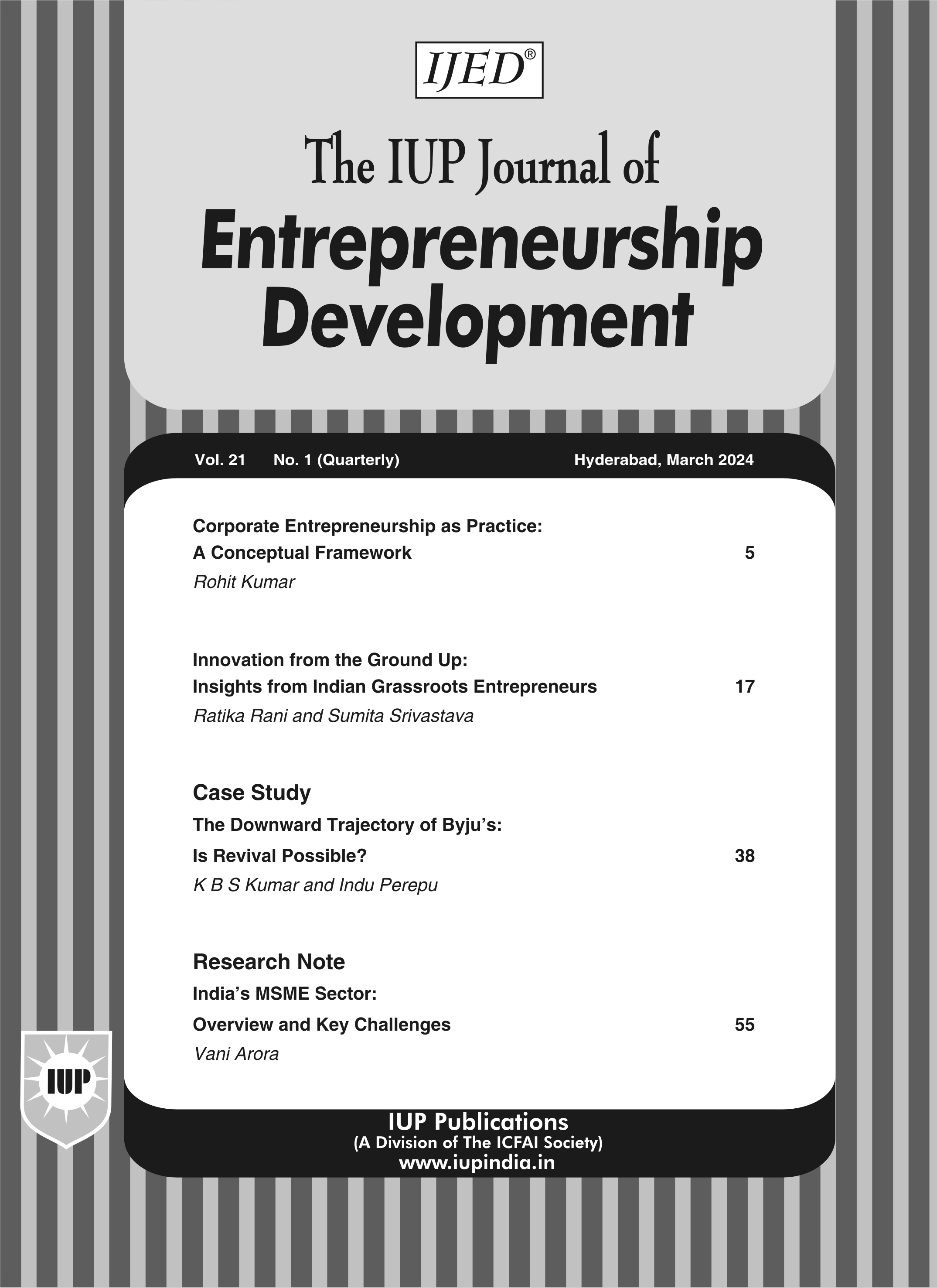
Sep '22
The IUP Journal of Entrepreneurship Development
Archives
Role of Entrepreneurial Strategy and Business Environmental Perspectives: Evidence from Clay Cluster in West Bengal, India
This study analyzes the business environment aspects and strategic choices and their interrelation that influence the operations of enterprise owners. Environmental issues are represented by the input condition, access to finance, competition from substitute products, marketability based on easy transport, etc. Strategic choices reflect those through which the business goals are expected to be achieved. The study covers 60 clay tiles enterprises in Murlu area of Bankura district, West Bengal (India). Likert scaling technique, principal axis factoring and canonical correlation analysis are used to analyze the success factors of the cluster. The canonical analysis indicates that there is a fairly strong linear relationship between the perceived environmental variables and the set of strategic factors. FullArticle...
Factors Influencing Entrepreneurship Ecosystem and Economic Development: Evidence from Cross-Sectional Country-Wise Imbalanced Panel Data Analysis
This study assessed the factors influencing economic development and entrepreneurship ecosystem using log-linear regression models. It used global entrepreneurship index score as a proxy variable for entrepreneurship ecosystem, and per capita Gross Domestic Product (GDP) as a representative variable for economic development in the regression analysis. It compiled a cross-sectional imbalanced panel data of dependent and explanatory variables for 106 countries during 2006-2019. The models showed that entrepreneurship ecosystem and economic development were positively associated with business density rate, business extent of disclosure index, exports of goods and services, Foreign Direct Investment Net Inflows (FDINI), individuals using the Internet and market exchange rate. Further, entrepreneurship ecosystem was positively associated with economic development and vice versa. Entrepreneurship ecosystem and economic development have a cause-and-effect relationship with each other. The results also show a diverse impact of economic development and entrepreneurship ecosystems in developed and developing countries. FullArticle...
Impact of Covid-19 Travel Restrictions on the Entrepreneurial Spirit of Handloom Weavers in Sri Lanka: A Qualitative Study
The coronavirus pandemic interrupted
the global supply chain and the
economies all over the world. The
World Health Organization (WHO) declared
the Covid-19 outbreak as a pandemic, which
has affected all powerful economies in the
world (Plohl and Musil, 2021). The pandemic
continues to create havoc across the world
and countries have taken alternative measures
to secure their economies, protect lives and
limit its spread. To control the spread of
Covid-19 and protect lives, many countries
imposed a lockdown. As a consequence of
this, worldwide trade fluctuated and local,
international, small-scale and large-scale
businesses and their functions collapsed. A
large number of workers are under threat of
losing their jobs as organizations are laying
off employees (Acikgoz and Gunay, 2020).
Among the affected sectors, the apparel
sector plays a prominent role. The garment
sector employs more than 60 million workers
around the globe. The world apparel market
growth diminished by 1.9% due to Covid-19
and is one of the reasons for world economic
slowdown (Dohale et al., 2021). In the
context of developing nations, the apparel
sector plays a significant role in terms of
revenue generation and employment creation.
The industry is undergoing a drastic change
due to global sourcing and high level of
FullArticle...